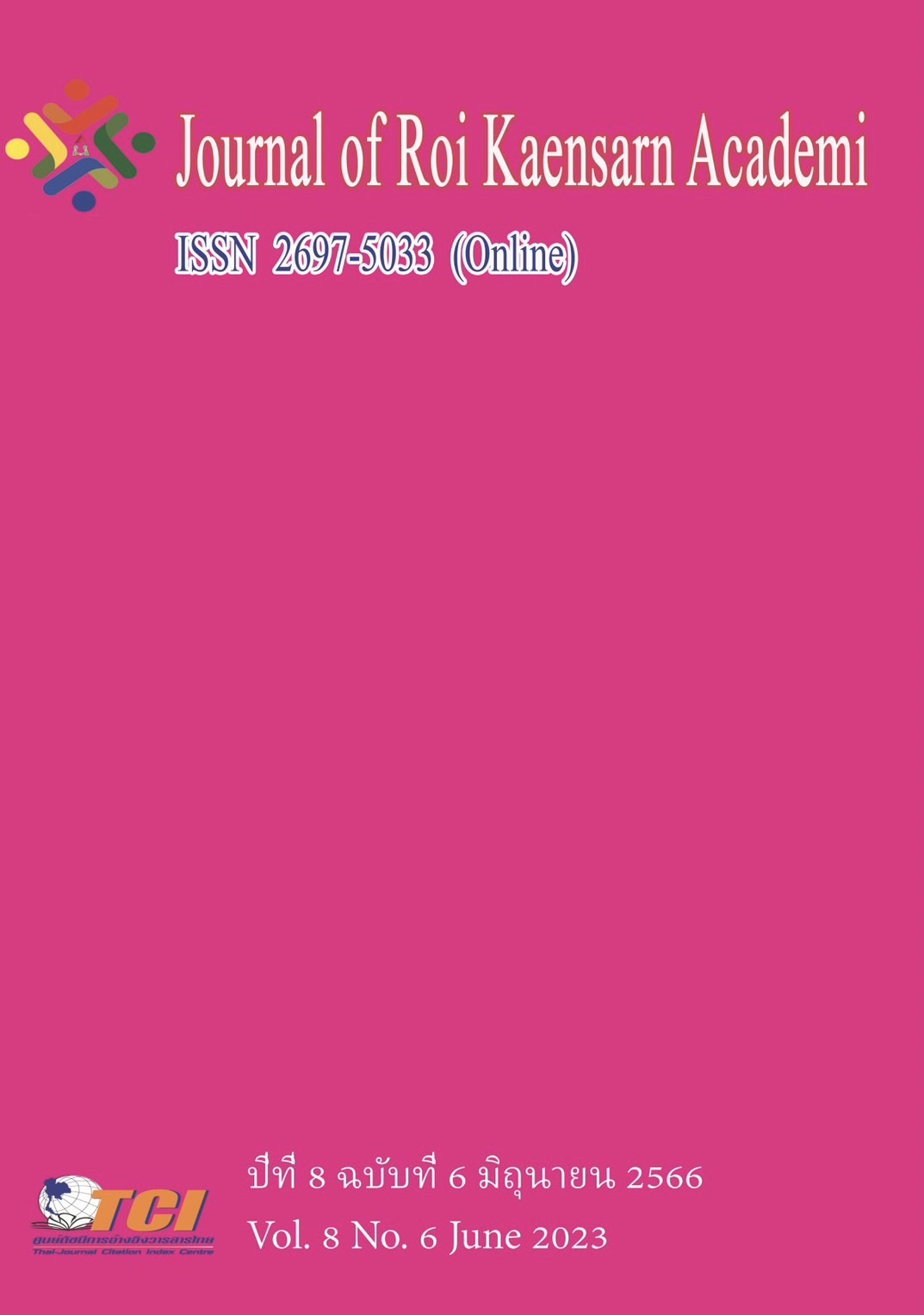ความรู้ที่จำเป็นสำหรับครูวิทยาศาสตร์
Main Article Content
บทคัดย่อ
“การที่จะเป็นครูวิทยาศาสตร์ได้ จะต้องมีความรู้หรือจะต้องเรียนอะไรบ้าง?” คำถามนี้นำไปสู่การคิดทบทวนเกี่ยวกับความรู้ที่จำเป็นสำหรับครู เพราะปัจจุบันนี้ นิสิต/นักศึกษาครูในมหาวิทยาลัยมีการพัฒนาความรู้ด้านเนื้อหาและความรู้ด้านวิธีสอนแบบแยกส่วนกัน อาจจะด้วยสาเหตุดังกล่าว จึงพบว่ายังมีครูบางส่วนที่สอนวิทยาศาสตร์โดยไม่คำนึงถึงความรู้ของผู้เรียน กระบวนการจัดการเรียนรู้จึงทำได้เพียงการบรรยายเพื่อถ่ายโอนแต่เพียงเนื้อหาไปยังผู้เรียนเท่านั้น ซึ่งแสดงให้เห็นว่าครูยังขาดความรู้ความสามารถในการปรับเปลี่ยนรูปแบบเนื้อหาทางวิทยาศาสตร์เพื่อที่จะถ่ายทอดไปยังผู้เรียนด้วยวิธีการที่เหมาะสม ดังนั้นในบทความนี้จึงมีวัตถุประสงค์เพื่ออธิบายองค์ประกอบของความรู้ที่จำเป็นสำหรับครูจากมุมมองของนักการศึกษาหลายๆ คน โดยสรุปแล้ว ความรู้ที่จำเป็นสำหรับครูที่นักการศึกษาเห็นตรงกัน ประกอบไปด้วย ความรู้ด้านเนื้อหา ความรู้เกี่ยวกับหลักสูตร ความรู้เกี่ยวกับผู้เรียน ความรู้เกี่ยวกับวิธีสอน ความรู้เกี่ยวกับการวัดและประเมินผล และ ความรู้ในเนื้อหาผนวกวิธีสอน ซึ่งเป็นความรู้เกี่ยวกับการสอนในวิชาเฉพาะด้าน ถึงแม้ว่า ที่ผ่านมาเราไม่ได้ให้ความสำคัญต่อความรู้ด้านการสอนในวิชาเฉพาะมากนัก แต่ในอนาคตนักการศึกษาก็มีแนวโน้มว่าจะให้ความสำคัญกับองค์ความรู้ที่ขาดหายไปตรงนี้เพิ่มมากขึ้น เพื่อที่จะได้พัฒนาครูวิทยาศาสตร์ต่อไปให้มีประสิทธิภาพ
Article Details
เอกสารอ้างอิง
ลือชา ลดาชาติ. (2565). ความรู้เนื้อหาผสานวิธีสอนสำหรับการสอนวิทยาศาสตร์: สิ่งที่ผู้เตรียมและพัฒนาครู วิทยาศาสตร์ควรรู้. กรุงเทพมหานครฯ: สำนักพิมพ์จุฬาลงกรณ์มหาวิทยาลัย.
ลือชา ลดาชาติ และ ลฎาภา ลดาชาติ. (2561) ความรู้เดิมของนักเรียน: อุปสรรคหรือทรัพยากร. วารสาร หน่วยวิจัยวิทยาศาสตร์ เทคโนโลยี และสิ่งแวดล้อมเพื่อการเรียนรู้ (JSTEL). 9 (2). 324-339.
ทรงผล ผดุงพัฒนากุล, วันเพ็ญ ประทุมทอง และจรรยา ดาสา, (2561). ความรู้ในเนื้อหาผนวกวิธีการสอนตาม แนวทางการจัดการเรียนรู้แบบสืบเสาะของนักศึกษาครูเคมีก่อนและหลังการฝึกประสบการณ์วิชาชีพ ครู. วารสารมหาวิทยาลัยศรีนครินทรวิโรฒ. 34 (1), 225-246.
Abell, S.K., M.A. Park-Rogers, D.L. Hanuscin, M.H. Lee and M.J. Gagnon. (2009). Preparing the next generation of science teacher educators: A model for developing PCK for teaching science teachers. Journal of Science Teacher Education. 20, 77-93.
Abell, S.K. (2007). Research on science teacher knowledge. In S.K. Abell and N.G. Lederman. (eds.). Handbook of research on science education. London: Lawrence Erlbaum Associates, 1105-1151.
Barnett, D. and Hodson. (2001). Pedagogical context knowledge: Toward a fuller understanding of what good science teachers know. Science Education. 85(4), 426-453.
Bartholomew, H., Osborne, J. and Ratcliffe, M. (2004). Teaching students “ideas‐about‐ science”: Five dimensions of effective practice. Science Education. 88, 655-682.
Carlsen, W. S. (1999). Domains of teacher knowledge. In J. Gess-Newsome and N. G. Lederman (eds.). Examining Pedagogical Content Knowledge. Netherlands: Kluwer Academic Publishers.
Carlson, J., Stokes, L., Helms, J., Julie, G. N., & Gardner, A. (2015). The PCK summit: A process and structure for challenging current ideas, provoking future work, and considering new directions. In Re-examining pedagogical content knowledge in science education. 14-27.
Carlson, J.; Daehler, K.R. (2019). The Refined Concensus Model of Pedagogical Content Knowledge in Science Education. In Repositioning Pedagogical Content Knowledge in Teachers’ Knowledge for Teaching Science; Hume, A., Cooper, R., Boroswki, A., Eds.; Springer: Singapore. 77–92.
Cochran, K. F., J. A. DeRuiter, and R. A., King. (1993). Pedagogical content knowing: An Integrative model for teacher preparation. Journal of Teacher Education. 44 (4). 263-272.
Faikhamta C. (2017). The development of research and reflective practice (RARP) - based internship program to enhance pre-service science teachers’ pedagogical content knowledge (PCK). Thailand Science Research and Innovation.
Geddis, A.N. (1993). Transforming subject-matter knowledge: the role of pedagogical content knowledge in learning to reflect on teaching. International Journal of Science Education. 15 (6). 673-683.
Gess-Newsome, J. (1999). PCK: An introduction and orientation. In J. Gess-Newsome and N. Lederman (Eds.). Examining PCK: The construct and its implications for science education. Boston: Kluwer.
Gess-Newsome, J., & Carlson, J. (2013). A report on the PCK summit: Current and future research directions. In Symposium at the annual meeting of the National Association for Research in Science Teaching (NARST). Puerto Rico.
Grossman, P. L. (1990). The making of a teacher: Teacher knowledge and teacher education. New York: Teachers College Press.
Kind, V. (2009). Pedagogical content knowledge in science education : potential and perspectives for progress. Studies in science education. 45 (2). 169-204.
Kind, V. (2016). Preservice science teachers' science teaching orientations and beliefs about science. Science education. 100 (1). 122-152.
Loughran, J., A. Berry and P. Mulhall. (2008). Exploring Pedagogical Content Knowledge in Science Teacher Education. Journal of Science Education. 30 (10). 1301-1320.
Lowery, N.V. (2002). Construction of teacher knowledge in context: Preparing elementary teachers to teach mathematics and science. School Science and Mathematics. 102 (2). 68-83.
Magnusson, S., L. Krajcik and H. Borko. (1999). Nature, sources, and development of PCK for science teaching. In J. GessNewsome & N.G. Lederman (eds.). Examining PCK: The construct and its implications for science education. Boston: Kluwer Academic Press. 95-120.
Mavhunga, E., and M. Rollnick. (2014). Improving pck of chemical equilibrium in pre-service teachers, African. Journal of Research in Mathematics, Science and Technology Education. 17 (1-2). 113-125.
Morine-Dershimer, G. and Kent, T. (1999). The Complex Nature and Sources of Teachers’ Pedagogical Knowledge in Examining Pedagogical Content Knowledge. Dordrecht: Kluwer Academic Publishers.
Shulman, L. (1986). Those who understand: A conception of teacher knowledge. American Educator, 10(1): 9–15. 43–44.
Shulman, L. (1987). Knowledge and teaching: Foundations of the New Reform. Harvard Educational Review. 57(1). 1–22.
Stolk, Machiel., Jong, O., Bulte, A.M.W. and Pilot, Albert. (2011). Exploring a Framework for Professional Development in Curriculum Innovation: Empowering Teachers for Designing Context-Based Chemistry Education. Research in Science Education. 41. 369-388.
Saad, Rayana & Boujaoude, Saouma. (2012). The Relationship between Teachers’
Knowledge and Beliefs about Science and Inquiry and Their Classroom Practices. Journal of Mathematics, Science & Technology Education. 8. 113-128.
Zembal‐Saul, C. , Krajcik, J. and Blumenfeld, P. (2002). Elementary student teachers' science content representations. Journal of research in science teaching. 39: 443-463.

